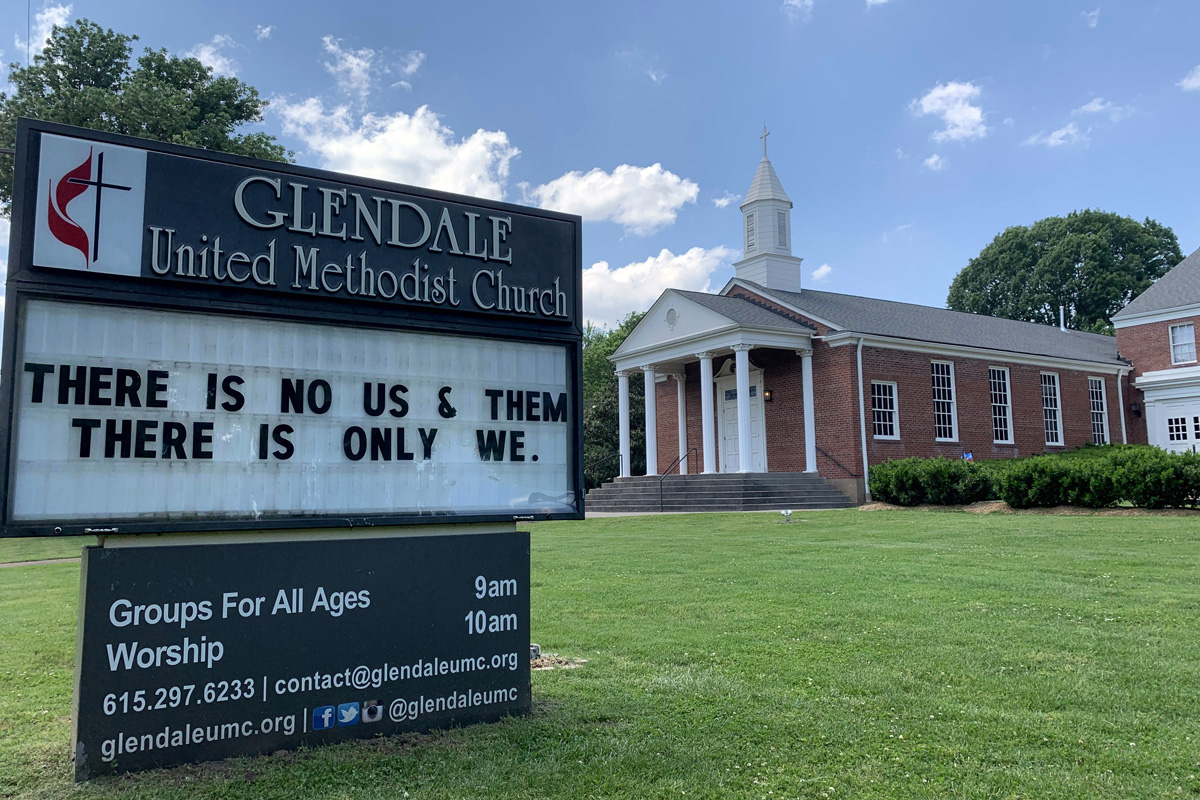Authorities continue to investigate the motive for the March 16 shootings at Atlanta area massage parlors that left eight people dead, including six Asian women.
The suspect in custody reportedly told investigators he shot the victims not out of race hatred but in response to his sexual addiction.
Still, some United Methodists are underscoring that the horrific violence occurred amid a well-documented rise in harassment and attacks against people of Asian ancestry in the U.S.
“The United Methodist Church has a moral obligation to be vocally and visibly outraged at these shootings and this precipitous rise in violence and hatred against the Asian American community,” said the Rev. John Oda, who directs The United Methodist Church’s Asian American Language Ministry Plan.
North Georgia Conference Bishop Sue Haupert-Johnson said United Methodists in the Atlanta area mourn the loss of eight lives and condemn the killings.
“We note the alarming spike in crimes against Asians and Asian Americans and deplore hateful rhetoric that fuels these crimes,” she said. “We continue to focus upon … our anti-racism work.”
The Rev. William Seihwan Kim, pastor of Korean Church of Atlanta UMC, said the church is trying to organize a way to help those affected by the tragedy.
Bishop Hee-Soo Jung of the Wisconsin Conference emphasized that the motive for the Atlanta killings is still under investigation. But he said Asian Americans have recently experienced “very targeted hatred” due to strains in U.S.-China relations and COVID-19 having first been reported in China.
“Fear is rising,” Jung, who was born in Korea, said by phone. “It’s not an easy time for racial ethnic communities. Our Christian community needs to work hard to educate for harmony and peaceful living together.”
The killings occurred at three Atlanta area spas.
Police arrested Robert Aaron Long, a 21-year-old white man, and said he admitted to the shootings and denied having a racial motive.
Captain Jay Baker of the Cherokee County Sheriff’s Office said Long told investigators the massage parlors were “a temptation for him that he wanted to eliminate.”
But authorities said investigation continues into the reason for the killings.
Just a day before the Atlanta area killings, the Asian American Language Ministry Plan and the New Federation of Asian American United Methodists released a statement condemning the rise of anti-Asian violence in the U.S.
Last month, the plan also issued a statement decrying violence against Asian American elderly in the San Francisco Bay Area.
The statements referenced research by the Stop AAPI Hate reporting center. The center documented a sharp rise in verbal and physical attacks against Asian Americans over the last year, with women the victims in a large majority of cases.
News organizations such as PBS Newshour have recently reported that Asian Americans are forming their own patrols in Oakland, California, to help guarantee the safety of community members, particularly the elderly.
The United Methodist groups’ statement this week tied the rise in attacks to politicization of the pandemic.
“Politically charged racist rhetoric has fomented the hate against Asian Americans,” the statement said. “The people who have perpetrated these acts of violence have used racist language including phrases like: Wuhan Virus, Kung Flu, China Virus, China Plague. This dangerous scapegoating is fabricated and must stop.”
Jung and other United Methodist bishops of Asian background were among more than 40 signatories to the statement, which calls on the Council of Bishops to “create opportunities to listen to and hear from Asian Americans” about what they’ve experienced of late.
“As one of the signatories of the statement, I offer my own commitment to listening to those who are hurting and to joining with everyone who is seeking justice for all people,” New England Conference Bishop Sudarshana Devadhar said on March 17.
California-Pacific Conference Bishop Grant Hagiya also signed the statement. He said by phone that, whatever the motivation behind the Atlanta area killings, statistical and anecdotal evidence bears out a rise in anti-Asian acts.
“The uptick is just something we can’t ignore,” said Hagiya, a third-generation Japanese American. “We continue to monitor this and be very concerned about Asian Americans, Asians and Pacific Islanders.”
Hagiya has heard from Cal-Pac members about verbal harassment, and has experienced it himself.
“I run every day, and this was an incident with an Anglo man who started yelling at me for no reason,” he said. “This is the kind of thing we worry about because it could easily escalate.”
The United Methodist Commission on Religion and Race posted a statement on social media.
“Racism and violence against Asian Americans is a growing crisis,” the statement said. “(The commission) stands with our Asian siblings facing anti-Asian racism and violence and we will continue to work to confront implicit biases and dismantle racism however we can.”
Religions for Peace USA, whose co-moderator is the Rev. Youngsook Kang of The United Methodist Church, also issued a statement, saying it stands with the Asian American and Pacific Islander communities in a time of “rising hatred and violence.”
Glendale United Methodist Church in Nashville, Tennessee, had on its outdoor sign “There Is No Us & Them, There Is Only We” and took to social media, using the hashtag #StopAsianHate.
Hodges is a Dallas-based writer for United Methodist News. Thomas Kim, Tim Tanton and Joey Butler of UM News contributed. Contact Hodges at 615-742-5470 or [email protected]. To read more United Methodist news, subscribe to the free Daily or Weekly Digests.
Like what you're reading? Support the ministry of UM News! Your support ensures the latest denominational news, dynamic stories and informative articles will continue to connect our global community. Make a tax-deductible donation at ResourceUMC.org/GiveUMCom.




